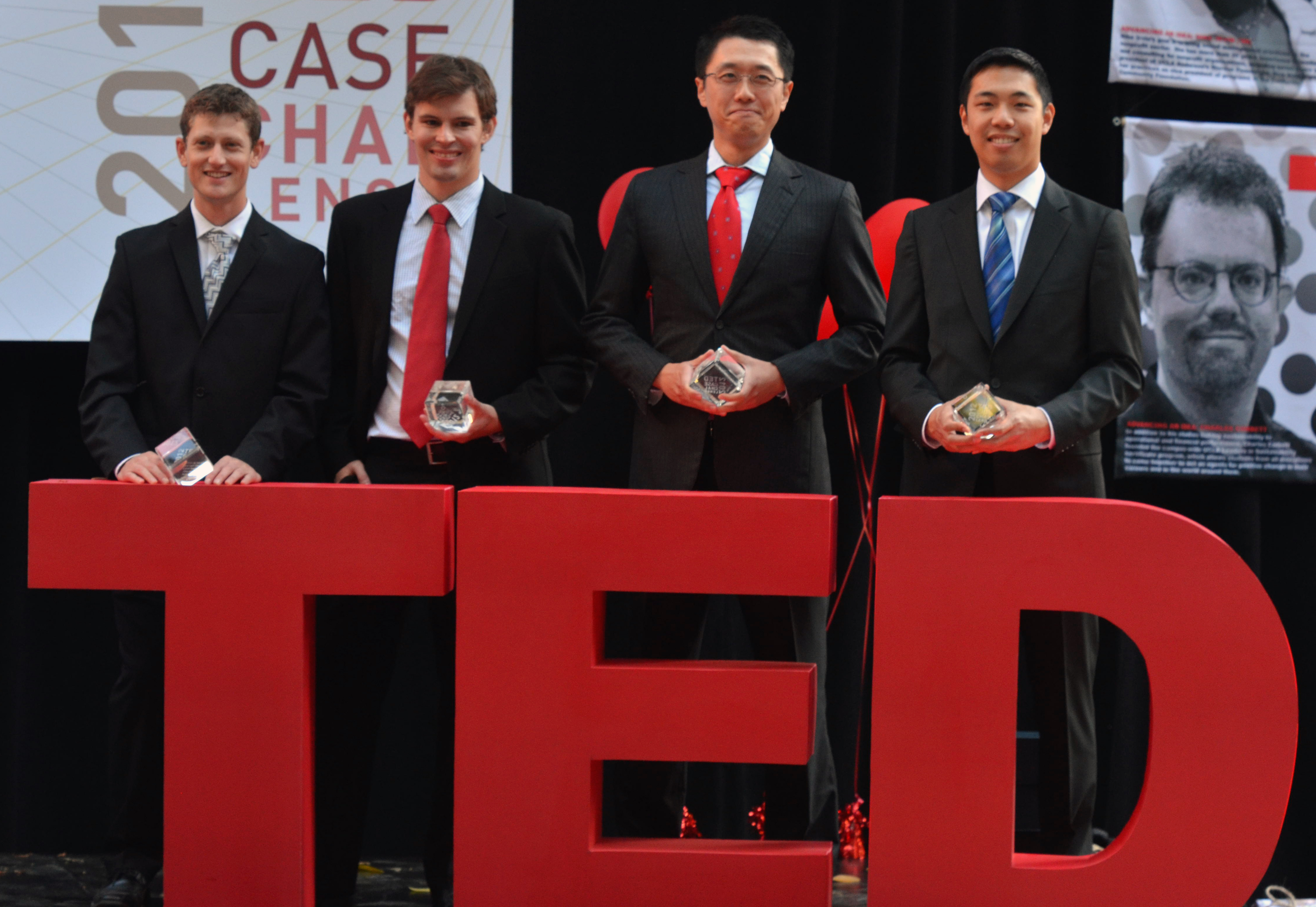Clarification: The original version of this article was unclear. Ronda Carnegie is head of Global Partnerships at TED.
Clad in dark suits and red ties, four business students stood on stage in Korn Convocation Hall.
A slide of a young girl from Malawi smiling at the camera flashed through a projector.
Because of philanthropic business practices, the girl was able to walk to school, Danny Greene, one of the graduate students, said during the presentation.
Greene and his teammates, all first-year business graduate students, presented a plan to integrate business and philanthropy as part of the TED Case Challenge, a partnership between TOMS shoes, TEDActive and UCLA that asked participants to answer the question, “How do you make ideas actionable?”
The competition was intended to encourage young people to connect business and philanthropy, said Ronda Carnegie, head of Global Partnerships at TED and a judge at the event.Thirty-one total entries were whittled down to four finalists.
These finalists presented their plans to a panel of eight judges Thursday evening, said Golie Alemi, a spokesperson for the UCLA Anderson School of Management.
Greene and his colleagues, members of team GifTED, won first place and were awarded a $10,000 prize and a week-long internship at the TED headquarters in New York.
When judges announced that GifTED won the competition, Billy Wang burst into an elaborate fist-pump.
“It’s somewhat uncontrollable ““ I have one outburst, and then that’s it,” said Wang, a first-year business graduate student.
Through research and prior knowledge, the group found that they would need to blend social incentives and daily routines to encourage people to donate more to charity organizations to create an effective business plan, said Kenny Liao, a first-year Anderson student who was part of the winning team.
If the team is able to implement its project idea, customers can use their credit card at a TOMS partner store, such as Whole Foods.
One percent of the purchase will be automatically donated to a charity of the consumer’s choice.
A website created by GifTED members can then convert the donation amount to points for consumers to see the size of their donations.
This would add a social incentive element to encourage more donations, Liao said.
While large companies tend to donate to charities, team members thought it would be impactful to let the customers choose where the donation will go, Wang said.
Unlike with donations from other organizations, the money would not be earmarked for pre-decided goals.
The donations could be used according to discretion of the charity organization, Greene said.
Companies are more likely to develop a culture of social responsibility.
They will continue donating if the practice starts as part of their company’s ethos, Liao said.
Judges voted for the GifTED team because its business idea seemed well thought out and could be practically executed, said Bhagwan Chowdhry, a professor of finance and faculty director of the Master of Financial Engineering program who judged during the competition.
“They connected the dots very nicely,” he said.
Consumer Volunteerism, another group, was a surprise runner-up because the judges could not rule it out completely, said Carnegie.
During the summer, the GifTED team will spend a week in TED headquarters in New York.
Team members haven’t been told explicitly whether they will be working on their own idea or on another social entrepreneurship project at their week-long internship, Liao said.
“It’ll be great to see if (the proposal) goes anywhere” he added.
In addition to starting their internship, GifTED members plan to use the prize money in their own ways.
Ken Janssen, a first-year business graduate student, said he is using the prize money to buy a stroller.
He has a baby on the way in September.
Wang said he’d probably save it for his wedding in China over the summer.
Greene brought up his student loans, and Liao said he had bills to pay, laughing.
“The prizes were cool, but the competition and winning itself was the best thing,” Liao said.
